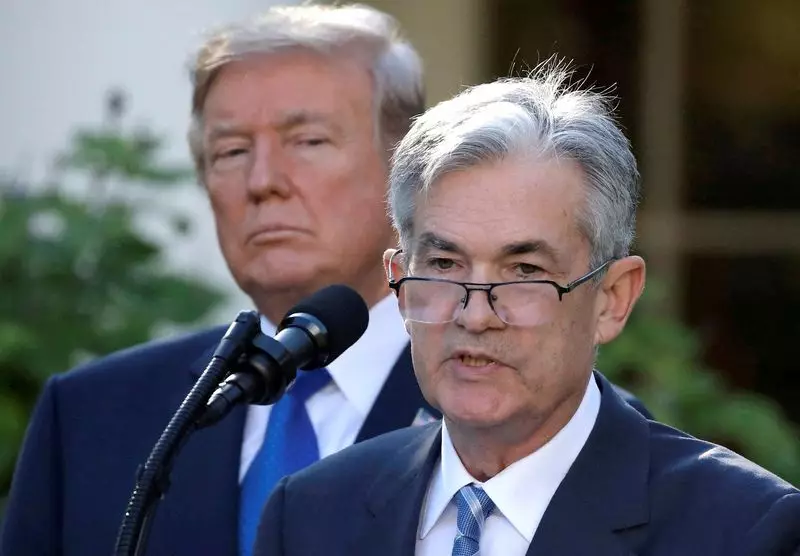As Donald Trump prepares for his return to the White House following the recent elections, one of the critical questions surrounding his presidency is whether he will attempt to reshuffle the leadership at the Federal Reserve. In a recent interview on NBC’s “Meet the Press,” Trump made a clear statement, indicating he would not seek to replace Jerome Powell, the current Fed Chair, at the commencement of his administration in January. While this might initially seem like a confirmation of stability at the central bank, it surfaces narratives on Trump’s complicated history with Powell and all the implications it could hold for economic governance.
Trump’s comments evidently highlight a paradox. On one hand, he acknowledges Powell’s tenure and expresses a feeling of resignation; but on the other hand, history suggests a turbulent and contentious relationship between the two. Trump’s interactions with Powell have included sharp disagreements on interest rate adjustments, which, if re-entering the spotlight, would complicate not just Trump’s promises but also the economic landscape for many American families.
During his campaign, Trump clearly articulated his desire to lower mortgage rates and reduce borrowing costs—a promise that complements his broader economic goals. However, such aspirations could effectively put him at odds with Powell’s fundamental mandate to manage inflation and promote stable prices. A potential clash may be unavoidable, particularly considering Trump’s past criticisms of Powell for not aligning with his pro-growth policies.
Trump’s inclination towards imposing across-the-board tariffs further muddies the waters, as such actions could jeopardize Powell’s obstructive measures against inflation. If Trump pushes forward with tariffs, it may lead to inflationary pressures that contribute to the Fed’s overarching challenge of maintaining price stability in a wary economy.
Trump’s complexities with monetary policy heighten discomfort, particularly because his administration marked a departure from the traditional norms surrounding the President’s interaction with the Fed. Historical precedent holds that American Presidents typically refrained from direct criticism of thecentral banking system, allowing it to operate with legal independence and disciplinary oversight by Congress. However, Trump’s willingness to confront and attack Powell publicly represents a significant shift in how the political sphere views Federal Reserve leadership.
The public and private comments made by Trump in the past add further depth to this narrative. While he named Powell to the position in 2018, their relationship soured in the face of rising interest rates, prompting Trump to consider ousting Powell altogether in late 2018. Such internal conflicts illustrate the tensions that permeate the nexus of political power and economic stability, raising concerns about the potential repercussions for both the Fed’s policy decisions and the overall U.S. economy.
Looking ahead, the independence of the Federal Reserve stands as a bulwark against the political encroachments that may await. Powell, previously a private equity executive and a Republican, has made clear that he intends to serve out his full term, a position he reinforced amid Trump’s previous threats. This independent stance is critical, especially as traders anticipate a possible interest rate reduction at the Fed’s next policy meeting, scheduled for December. A reduction would mark the continuing trend of easing monetary policy as the labor market reveals signs of cooling, and could set the stage for broader economic shifts as the new administration takes the reins.
The ongoing relationship between Trump and Powell will be pivotal as political dynamics evolve and economic challenges loom on the horizon. In these uncertain times, the focus will undoubtedly remain locked on how Trump navigates his commitments to voters while respecting the Fed’s independence and the essential principles that govern economic policy in the United States. The balancing act between these interests may very well define Trump’s new term and the trajectory of the nation’s economy in the years to come.

